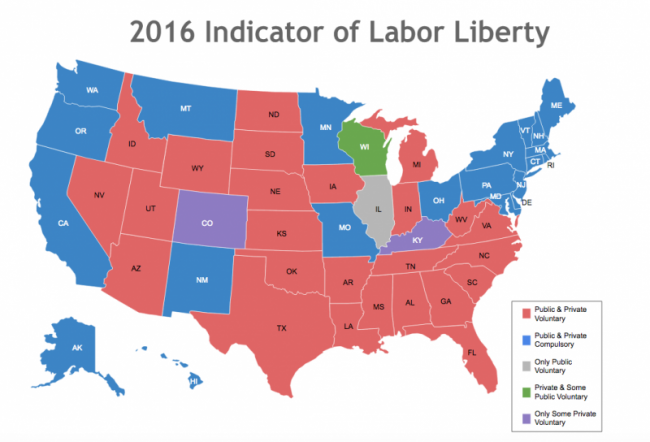Two new Studies Buttress Pro-Right to Work Arguments
“Right to Work for less.” That’s the mantra of labor unions and their supporters who wish to continue forcing workers to pay union dues even if they want nothing to do with the union.
Fortunately, according to recent research from James Sherk at the Heritage Foundation, using sophisticated data analysis, we know that “‘Right to Work’ laws are associated with 0.5 percent higher private-sector wages, a result that is not statistically significant. Fully controlling for living costs and including everything that private-sector workers earn shows that RTW laws have little effect on their wages.”
Private sector workers are the ones we should care about because they reflect the health of the private sector economy. Government wages are politically-set and thus unrelated to overall economic health.
A second new report from the American Enterprise Institute examines another anti-RTW claim, that being that they increase economic inequality. According to the authors, “adoption of RTW laws in Louisiana, Idaho, Texas and Oklahoma – states that enacted their RTW laws between the 1960s and the 2000s – did not contribute to the worsening of their state’s income inequality. We use a wide range of inequality measures. Our results are consistent across all measures. The finding is also robust across different specifications and choice of the control groups.”
Lastly, check out the following “2016 Indicator of Labor Liberty” from Daily Signal.
It looks beyond “right to work”/forced-unionism to show nuance. Neighboring Colorado, for example, according to the report “has a bizarre, hybrid system where only some of the private sector is free.” In Wisconsin, however, “anyone who works for a police or fire department must help fund a union even if the employee is not a member of the union.” So, these laws are not completely “black and white” as the map below shows.

